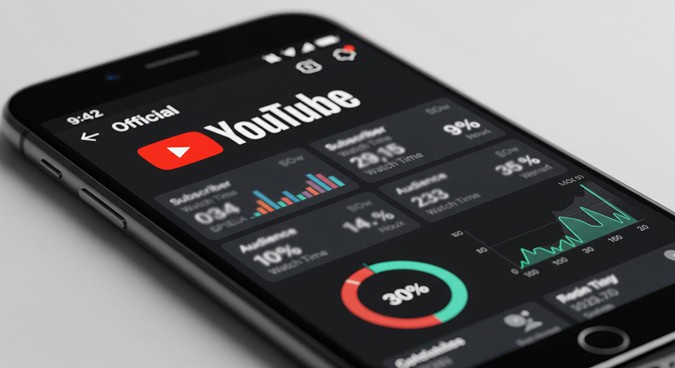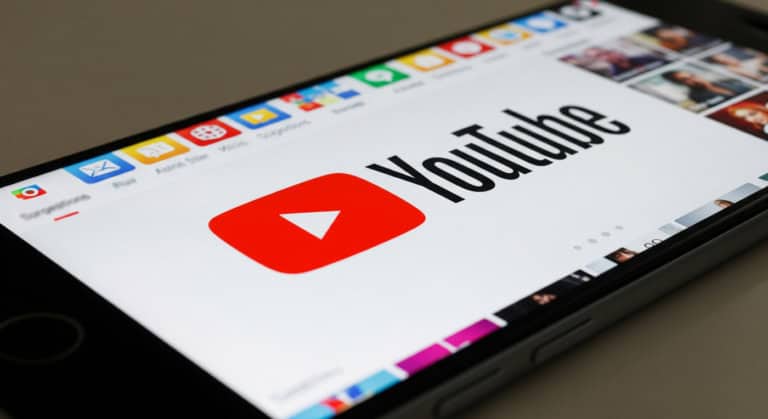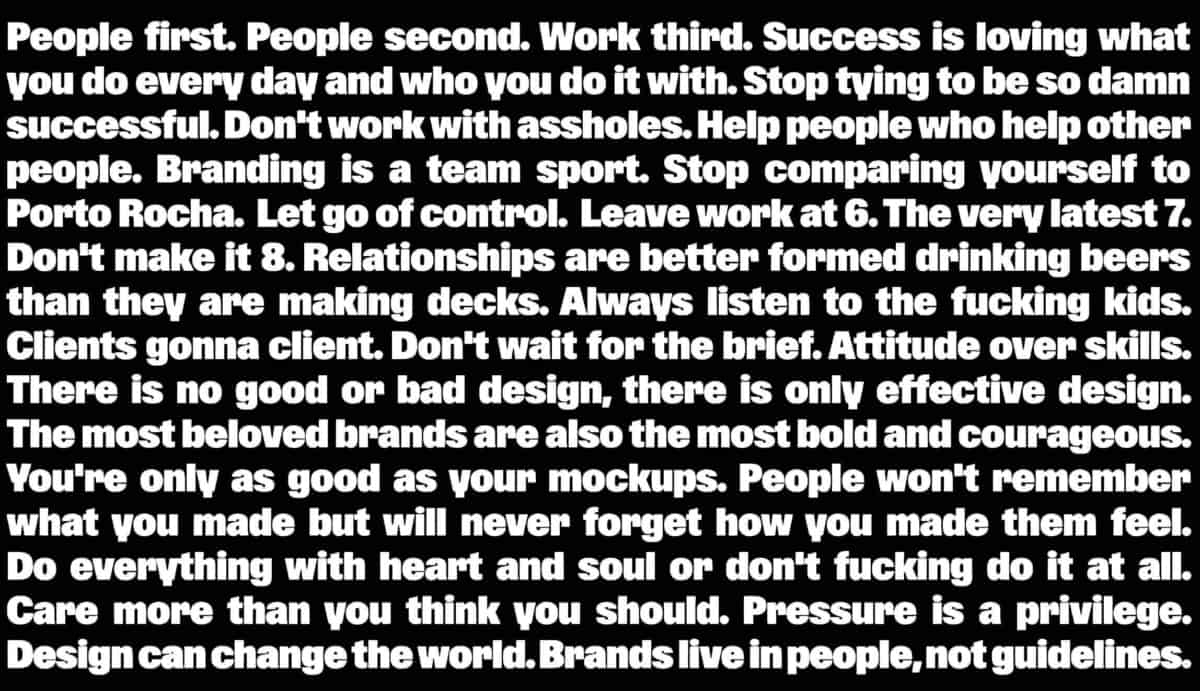
Brand New Conference, a two-day corporate and brand identity event, came to Austin on Oct. 3–4, featuring the world’s most renowned branding experts* as speakers and more than 1,000 designers as attendees.
*See their bios by day below the takeaways.
We sent our brand coordinator, Frankie Pike, to get the lowdown on all things brand and design in 2022 and beyond. These were their big takeaways:
1. How you treat people is key. Gone (or at least approaching gone) are the days of 70-hour work weeks and grinding young creatives down to the bone. The best talent refuses to work like that, and the best work is done when people have space to rest, play, and take care of themselves. As Nermin Moufti said, the process is more important than the outcome, more doesn’t mean better, and rest is resistance.
2. Don’t work for unethical companies. As Alex Center said, “designers should help people who help people.” Branding has immense power and real consequences. “[I] only work on stuff where I can look a five-year-old in the eyes and not feel bad telling them what I’m doing. There’s no way I’m going to my grave knowing that I turned cola into a breakfast food,” said Paul Worthington. “Algorithms have no conscience, and Mark Zuckerberg has no ethics.” Physical spaces shape how we see ourselves and our futures, and brands take up space.
“Ask yourself, ‘how are you going to engage with this world?’”
-Abdul Wahid Ovaice
3. Don’t follow trends, and learn your craft’s history before changing it. Nearly every speaker touched on this topic—stop following trends. Everyone has Canva and can replicate basic Instagram graphics and trendy logos. Trends do not last. Telling the authentic story of what makes you different will. Know how you got to where you are now visually and how that plays a role in your brand’s story.
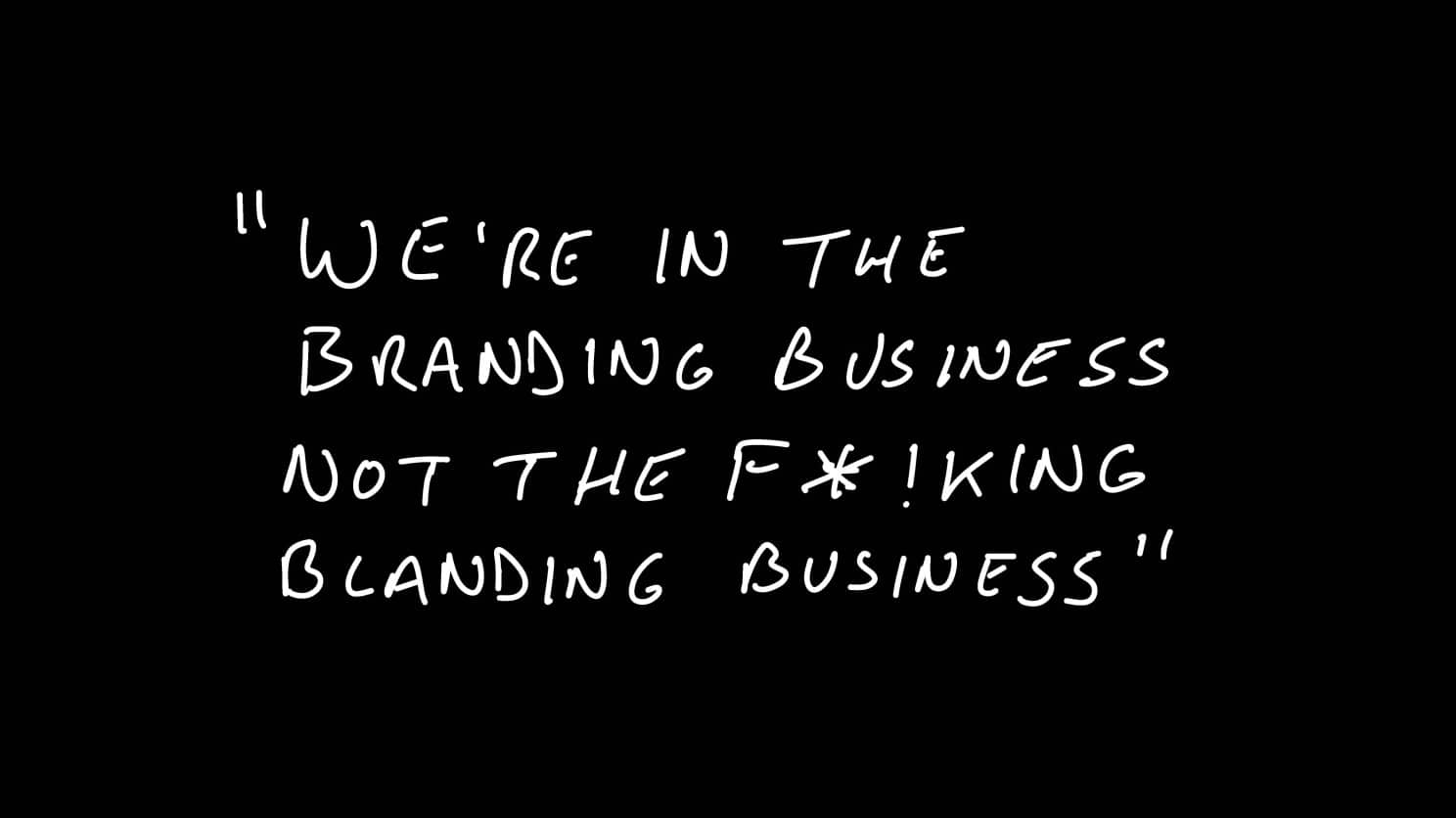
4. Branding isn’t about telling people what you sell—it’s about telling them what you do differently. As Abraham Lule said, design can make you look bigger or smaller than you actually are. Brands that do things differently make an impact. Those who only say what they do and aesthetically appear like everyone else seem small. Moufti spoke about moving forward with, rather than on from, the grief from the past few years in one’s practice. She said that eventually, all brands will die. When branding them now, think now about how you want them to be remembered. What would their obituaries be?
5. AI is coming, and the way to not be replaced by an algorithm is by having an imagination. “The core of strategy formulation is imagination,” said Paul Worthington. Shruthi Manjula Balakrishna explained that design is at the core of problem-solving. With AI art getting more and more impressive, even winning traditional art awards, some wonder if design will one day be replaced by an AI generator. But Worthington reassured the audience that AI doesn’t have imagination or strategy—he predicts that we will be the ones to envision our future, and AI will simply be a tool we use to get there.
“Designers are inherently strategic thinkers.”
-Porto Rocha
6. It is more common for brands to have “design” nowadays, but it’s likely to be pretty rather than meaningful. Good design isn’t just pretty; it tells a story. Having design alone isn’t enough. Without design, you cannot compete, Worthington explained. Design in and of itself doesn’t help you; only great branding does.
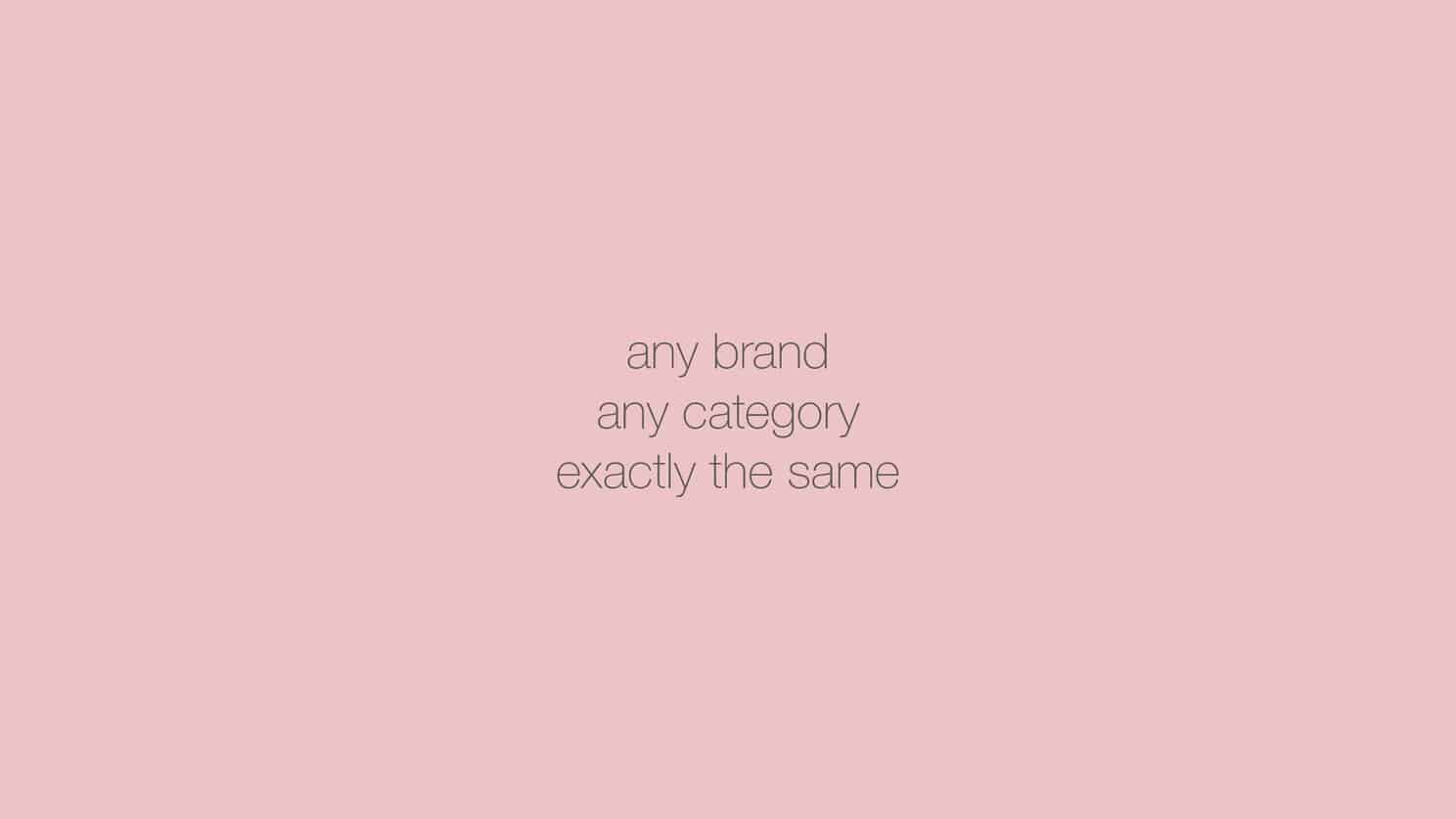
“When I started 20 years ago, good design was rare. Today it’s so important everyone has to have it. When everyone has to have something, it becomes table stakes. We often poo poo table stakes as a bad thing, but the truth is that it just means it’s so important everyone has to have it. However, it also means that it isn’t going to, in and of itself, be a competitive advantage. This means, whether we like it or not, that good design has become the new bad design. If everyone has access to good design, good design is no longer enough. So we’re right back where we started when we were surrounded by bad design… I call this phenomenon Helvetica in Pastels. And while we’ve seen a load of work for the past two days that isn’t like this, it remains the dominant reality we all face in our branded landscape.”
7. Take risks in design and in life. Maureen Raisch took a risk coming out as transgender, and that freed up mental space for her to be more creative. That was also Nadya Okamoto’s approach with August Co. “There is no growth in the comfort zone,” said Su Mathews Hale.
“Just try shit.”
-Nadya Okamoto
8. Be an expert in culture. You need to know what’s going on, how people talk, and what they think is funny. As Center explained, brands must be tied to culture and are a reflection of it. They’re personal. Leo Porto and Felipe Rocha referenced this as well, saying “designers must be culture experts.”
9. Build brands that can adapt to changing culture. While cultural awareness is important, don’t build a brand that will be irrelevant in six months. If your visual identity is flexible and can be adapted forever, it will stay relevant. As Lope Gutierrez-Ruiz and Michu Benaim S. said, build with a priority toward resilience, not growth.
10. Begin and end with gratitude. As Moufti, Center, and many others emphasized, it is a privilege to shape the brands that shape the world and be creative for a living. Remember to say “thank you.”
Day 1 speakers
Alex Center—CENTER (Brooklyn, NY)
Alex Center is a designer and the founder of his eponymous branding company, CENTER, based in Brooklyn, NY. Previously, he was The Coca-Cola Company’s design director for a decade.
Maureen Raisch—National Football League (New York, NY)
Maureen Raisch designed the Super Bowl LVI logo and developed the identity and concept for the event. During that time, she also came out as transgender. She is an award-winning illustrator focused on pro sports.
Nadya Okamoto—August (Brooklyn, NY)
Nadya Okamoto is the co-founder of August, a lifestyle period brand working to destigmatize menstruation. She published her debut book, Period Power, in 2018 and graduated from Harvard University in 2021.
Jeremy Mickel—MCKL Inc. (Los Angeles, CA)
Jeremy Mickel is the founder of MCKL, a type foundry and design studio in Los Angeles. He has published a library of fonts, some of which have been exhibited at MoMa.
Nermin Moufti—Field of Practice (Chicago, IL)
Nermin Moufti is the creative director and co-founder of Field of Practice, a creative studio based in Chicago. She has led branding and advocacy campaigns for Planned Parenthood, Type Directors Club, Onward, and StockX.
Jose Canales—Canales & Co. (Austin, TX)
Jose Canales is the founder and creative director of his eponymous design agency, Canales & Co., based in Austin, TX. He has designed for YETI, Costa, Cape May Brewing, and Whole Foods.
Lope Gutierrez-Ruiz and Michu Benaim S.—In-House International (Austin, TX)
Lope Gutierrez-Ruiz and Michu Benaim S. are the co-founders of In-House International, an Austin and Barcelona-based design studio. They have designed and researched for Meta, BBC, Indeed, WIRED, and TED.com.
Nhi Nguyen—Tilted Chair Creative (Austin, TX)
Nhi Nguyen is an art director and designer at Tilted Chair Creative in Austin, TX. She crafts visual experiences for people and purpose.
Abraham Lule—Independent (New York, NY)
Abraham Lule is an award-winning graphic designer born and raised in Celaya, Guanajuato, México. He has designed for José Cuervo, Capitol Records, Amazon, Disney, ESPN, and Facebook.
Leo Porto and Felipe Rocha—PORTO ROCHA (Brooklyn, NY)
Leo Porto and Felipe Rocha are the creative directors of their famous design studio, PORTO ROCHA. Their clients include Nike, Netflix, Upwork, and Vevo.
Day 2 speakers
Jesse Reed—Order (Brooklyn, NY)
Jesse Reed is a partner at the design office, Order. He is also the co-founder of an independent publishing imprint and brand guidelines product, Standards Manual and Standards.
Lisa Smith—Jones Knowles Ritchie (New York, NY)
Lisa Smith led the global rebrand from Burger King and has designed for Zocdoc, The Met, USA Today, Budweiser, and Grubhub. Previously, she was the executive creative director of Chobani and oversaw its rebrand.
Abdul Wahid Ovaice—Independent (San Francisco, CA)
Abdul Wahid Ovaice has led creative for Apple, Google, Meta, and Uber. He has also developed and led Square, PayPal, Nest Labs, and Oura Ring.
Erwin Hines—FUTURE IS COLOR and Open Gym (San Diego, CA)
Erwin Hines has led the creation of work for Google, COACH, Beats by Dre, and Under Armour. He co-founded Open Gym Hospitality and started fashion brand FUTURE IS COLOR to foster empathy and inclusion.
Flora Chan—Redscout (New York, NY)
Flora Chan is a design director at brand innovation consultancy, Redscout. Her work has been recognized by the AIGA, Fast Company, The Dieline, The Society for News Design, and more.
Shruthi Manjula Balakrishna—FÖDA (Austin, TX)
Shruthi Manjula Balakrishna is a design director at the design studio FÖDA. She is a Doctor of Design scholar and has designed for Google, Vrbo, Colorado Lottery, eBay, the University of Texas, Austin FC, and the Houston Symphony.
Russel Toynes—Studio Dzo (Austin, TX)
Russel Toynes is a partner and creative director at Studio Dzo, which he founded with his wife to disrupt the sign industry. They have done work for Indeed, Whole Foods Market, RetailMeNot, Dell, The Boys and Girls Club, and Cute Nail Studio.
Marcellina and David Kampa—Kampa Made (Smithville, TX)
The Kampas had long, successful advertising and design careers. Now, they pursue their other creative passions. Marcellina does photography and is a community manager for a travel and social platform for women 45+ who are #AgingBoldly. David designs and creates laser cut goods.
Edith Valle—Deeds Not Words (Austin, TX)
Edith Valle is the art director at Deeds Not Words, a civic engagement and advocacy group pushing for reproductive rights, healthcare, and justice. She launched The Galvanizer, a zine by and for young people that combines art with advocacy to raise awareness about political issues.
Paul Worthington—Invencion (Wilton, CT)
After decades at Wolff Olins and other top corporate identity agencies, Paul Worthington started his own strategic branding firm, Invencion. He also writes Off-Kilter, a blog and email newsletter “searching for the signal in the noise of brand, marketing, and design.”
Su Mathews Hale—Hale Design (Rochester, NY)
Su Mathews Hale works at the intersection of design and brand strategy as CEO and Chief Creative Officer of her branding agency, Hale Design. She has done work for Papa Johns, Citibank, Disney, Chick-fil-A, eBay, Hawaiian Airlines, Hershey’s, Hyatt, Sam’s Club, Samsung, Taco Bell, and Walmart.
